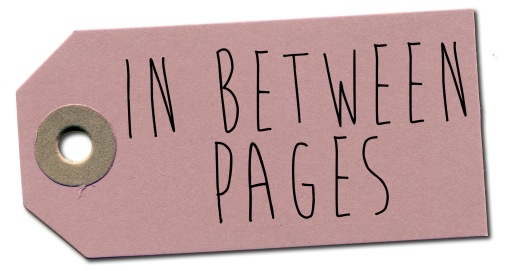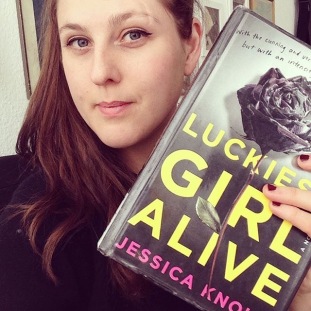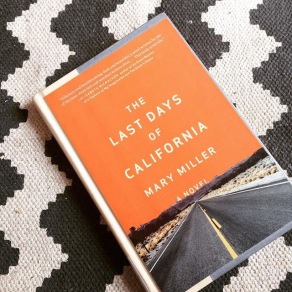 Paris in the 1920’s. Rainy and cold. Smoke filled cafes and run down hotel rooms. This is the bohemian setting for Jean Rhys’s Quartet. The novel tells the story of Marja, a woman who worked as a chorus girl and has no stable income or security in her life. When she marries the Polish art dealer Stephan Zelli, he promises to take care of her. And it seems she does have feelings for him, but how much those feelings are connected to the security he provides for her is not really clear. Her husband does keep his distance, has a very secretive life and when he has to go to prison, she is again forced to fend for herself. With no money or support system, living in an unfamiliar city she is forced to take drastic measures. In her desperation she accepts the invitation of a British couple, the Heidlers, to move in with them. But the invitation extends far beyond a living arrangement.
Paris in the 1920’s. Rainy and cold. Smoke filled cafes and run down hotel rooms. This is the bohemian setting for Jean Rhys’s Quartet. The novel tells the story of Marja, a woman who worked as a chorus girl and has no stable income or security in her life. When she marries the Polish art dealer Stephan Zelli, he promises to take care of her. And it seems she does have feelings for him, but how much those feelings are connected to the security he provides for her is not really clear. Her husband does keep his distance, has a very secretive life and when he has to go to prison, she is again forced to fend for herself. With no money or support system, living in an unfamiliar city she is forced to take drastic measures. In her desperation she accepts the invitation of a British couple, the Heidlers, to move in with them. But the invitation extends far beyond a living arrangement.
What stood out for me in this novel was the way the relationships were portrayed. Even though there are a lot of strong emotions between the characters, the relationships are never just black and white. Marja, even though she has feelings for both her husband and Heidler is also very aware of their flaws. She can never figure out her husband and his true feelings and is even afraid of the misogynistic Heidler at times. I felt that the depiction of these relationships, the way they are influenced by money, power or passion is at times messy but in the end still realistic:
“[…] poverty is the cause of many compromises.”
Nothing is simple in this novel. Not the people and not the feelings they have for each other. Following panic stricken Marja through the streets of Paris was definitely a striking experience. She was very aware of both herself and her social status in every interaction. Also, because she is a woman with very little to fall back on, she is either not taken seriously or taken advantage of:
“Stephan was secretive and a liar, but he was a very gentle and expert lover. She was the petted, cherished child, the desired mistress, the worshipped, perfumed goddess. She was all these things to Stephan – or so he made her believe.”
What made the story and its characters even more tangible is the fact that the novel is partly influenced by Rhys’s own experiences. Both Heidler and Zelli are based on real life characters. Marja’s affair with Heidler is the fictionalized account of her own affair with the writer Ford Madox Ford and Zelli shares similarities with her husband Jean Lenglet, who also had to spend time in prison.
I feel that Rhys is still a relevant writer today. Her style is very modern, both poetic and highly structured. Also, the statements her characters are making about anxiety, alienation and belonging are still as applicable as they were 90 years ago. Her novels give a voice to the underdogs of society as her characters are often living on the fringes of society. They often find themselves having to find their way through hardship and poverty while desperately trying to belong. She describes the lives of people with emotional and psychological problems, and gives a voice to the drunks, the mad and the poor. Almost everyone who has felt excluded or left out of society can relate to the novels written by Jean Rhys.
If you want to read more about Rhys, here is are two interesting articles from The Independent and The Paris Review.


 In the novel Luckiest Girl Alive Jessica Knoll takes the reader into the mind of 28-year-old TifAni FaNelli. Told from her perspective, we first get to see the life of present day Ani – as she prefers to be called now – and all the success that comes with it. She has the perfect position at a famous magazine. She is planning her Nantucket wedding to her successful and rich fiancé. And she is almost a size zero. But all these things don’t come easy to her and more importantly they do not make her happy. They are all just part of a façade she has been putting up for years. At the point just before you start to hate her, Knoll confronts the reader with Ani’s disturbing prep school past. And suddenly the glamour of her present day life is contrasted sharply with violence, rape and lots of blood.
In the novel Luckiest Girl Alive Jessica Knoll takes the reader into the mind of 28-year-old TifAni FaNelli. Told from her perspective, we first get to see the life of present day Ani – as she prefers to be called now – and all the success that comes with it. She has the perfect position at a famous magazine. She is planning her Nantucket wedding to her successful and rich fiancé. And she is almost a size zero. But all these things don’t come easy to her and more importantly they do not make her happy. They are all just part of a façade she has been putting up for years. At the point just before you start to hate her, Knoll confronts the reader with Ani’s disturbing prep school past. And suddenly the glamour of her present day life is contrasted sharply with violence, rape and lots of blood. Jessica is on a journey across the country and possibly to eternal life with her religious fundamentalist parents and older sister Elise. They stop at Waffle Houses, Burger Kings and cheesy motels, handing out end-time pamphlets during the day and making out with boys at night.
Jessica is on a journey across the country and possibly to eternal life with her religious fundamentalist parents and older sister Elise. They stop at Waffle Houses, Burger Kings and cheesy motels, handing out end-time pamphlets during the day and making out with boys at night.